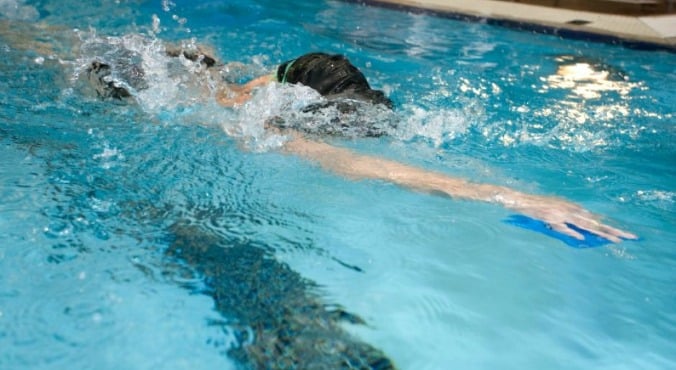
Image: ABC. By Cathy Johnson.
Swimming is great for fitness and muscle tone, but if you’re exercising with your waistline in mind, some might tell you to throw in the towel.
That’s because there’s a belief held by many that swimming is a lousy way to achieve weight loss. But is this really the case?
“If you want to lose weight, you’re better off walking around a pool than swimming in it,” according to Sydney exercise physiologist and personal trainer Andrew Cate.
“That’s obviously a bit extreme, but it does make the point. From a fat-loss perspective, swimming has some real negatives compared to other forms of exercise.”
Buoyancy effect.
It’s true that swimming involves some flotation, and this may reduce the work you have to do to move your body along, compared to land-based exercise — especially if you carry a bit of body fat, which increases buoyancy.
On the other hand, you have to work against the ‘drag’ effect of the water on your body and if your stroke is not very efficient, this may increase the energy you use swimming too.
University of Western Australia academic and researcher Kay Cox agrees there are some potential pitfalls in swimming to whittle your waistline, but she’s shown it can definitely be done.
She led a 2010 study of inactive older healthy women who took up a swimming program and compared them to those who took up a walking program.
The study, published in the journal Metabolism – Clinical and Experimental, showed that after a year on the program, the swimmers had lost more weight and more off their waistlines than those on the walking program.